Analytical skills Reading Worksheets for Ages 3-5
6 filtered results
-
From - To
Boost your child's analytical skills with our engaging reading worksheets designed for ages 3-5! These thoughtfully crafted activities encourage young learners to think critically and make connections while enjoying age-appropriate reading exercises. Our worksheets promote skills such as fact analysis, comparison, and sequence recognition, ensuring foundational literacy development. With vibrant illustrations and interactive challenges, each worksheet keeps children motivated and excited to learn. Perfect for home or classroom use, these resources help nurture essential cognitive abilities that will benefit your child throughout their education. Get started today and watch your little one's analytical prowess grow as they embark on their reading journey!
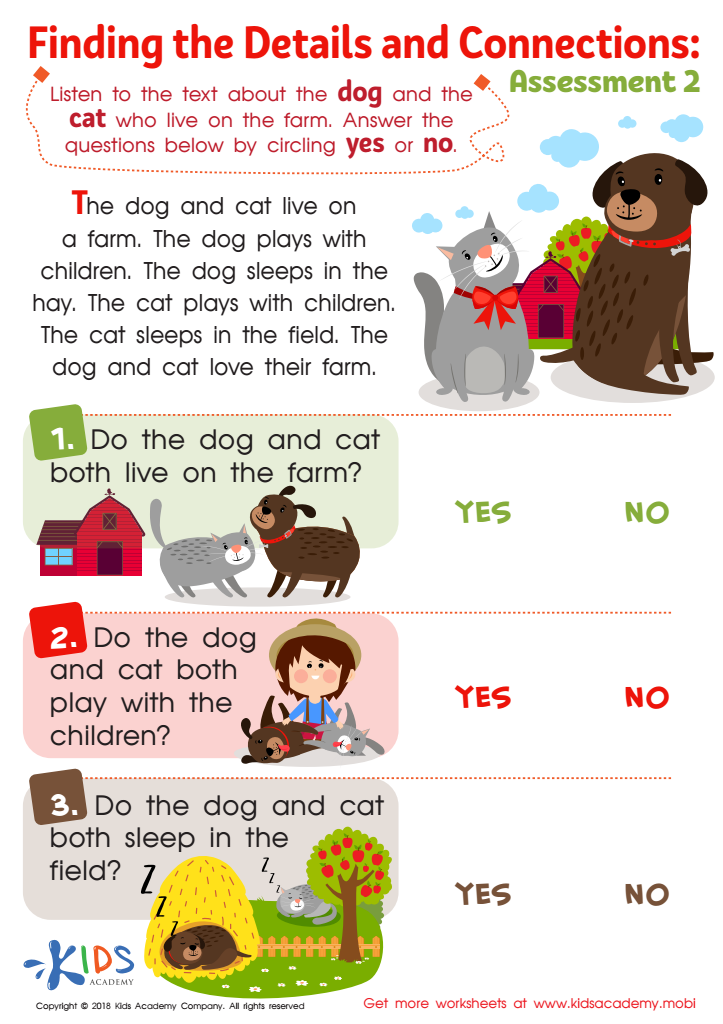

Finding the Details and Connections: Assessment 2 Worksheet
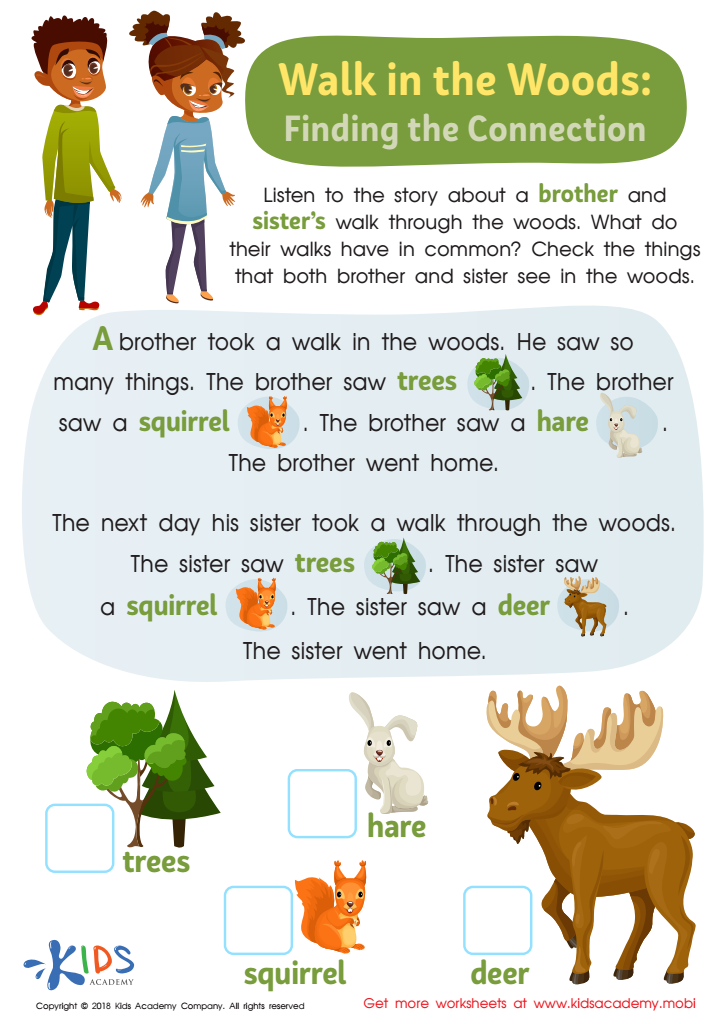

Walk In the Woods: Finding Connections Worksheet
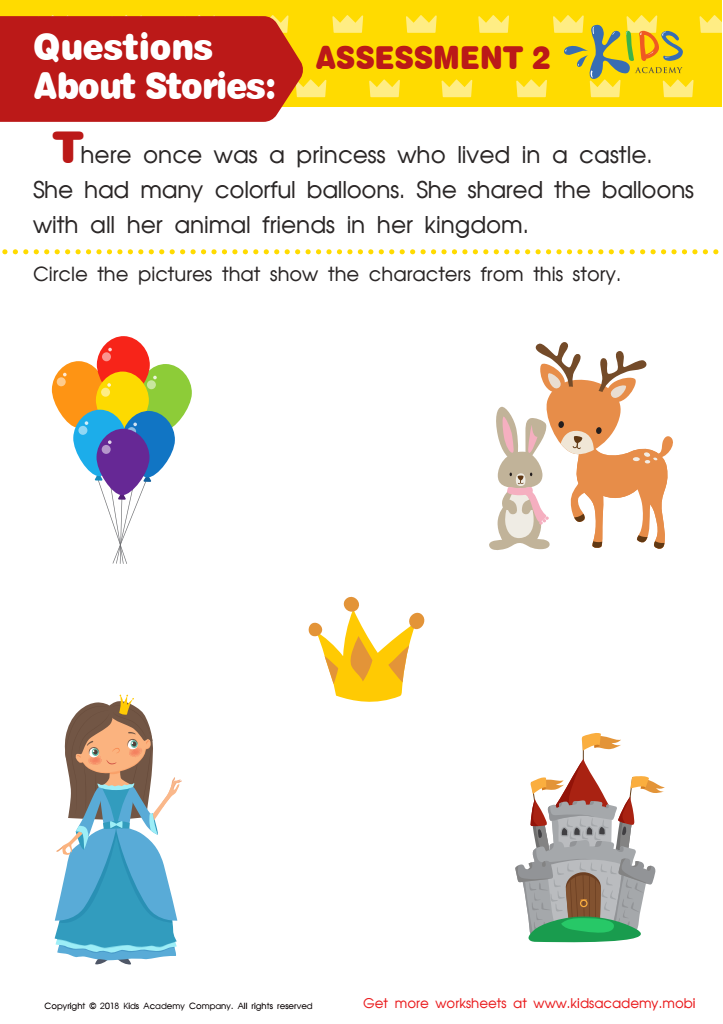

Questions About Stories: Assessment 2 Worksheet
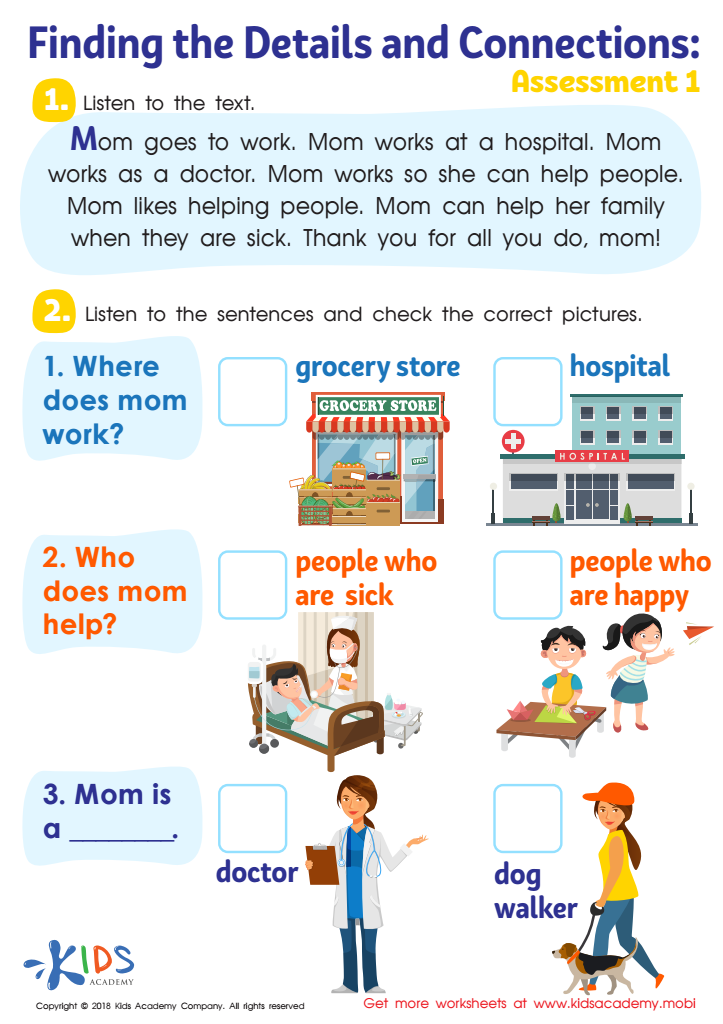

Finding the Details and Connections: Assessment 1 Worksheet
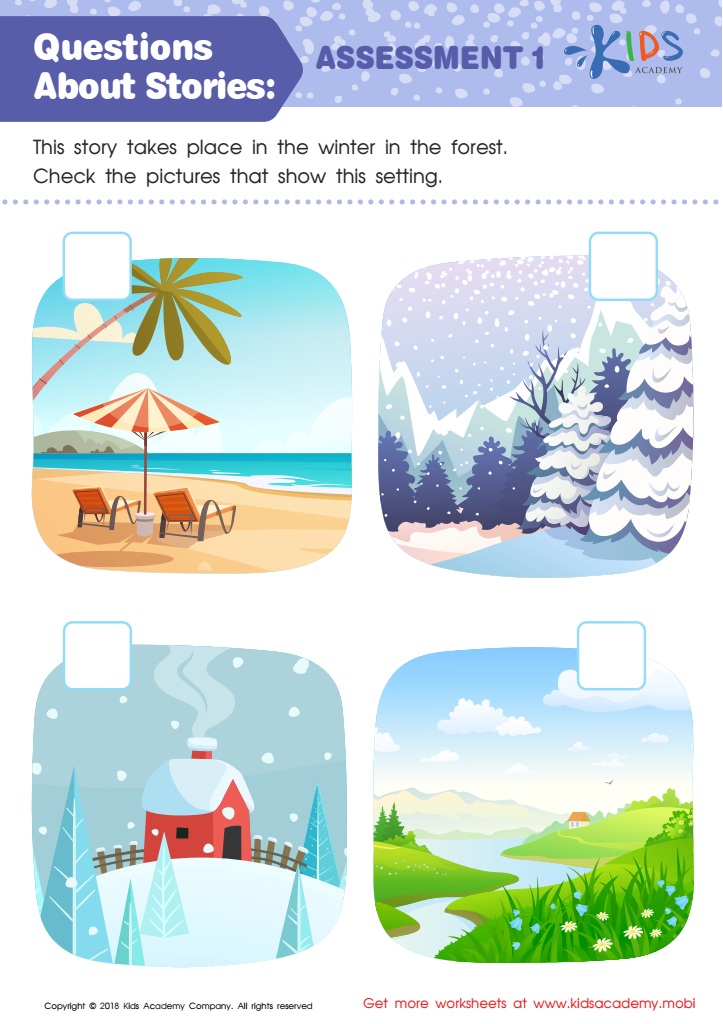

Questions About Stories: Assessment 1 Worksheet
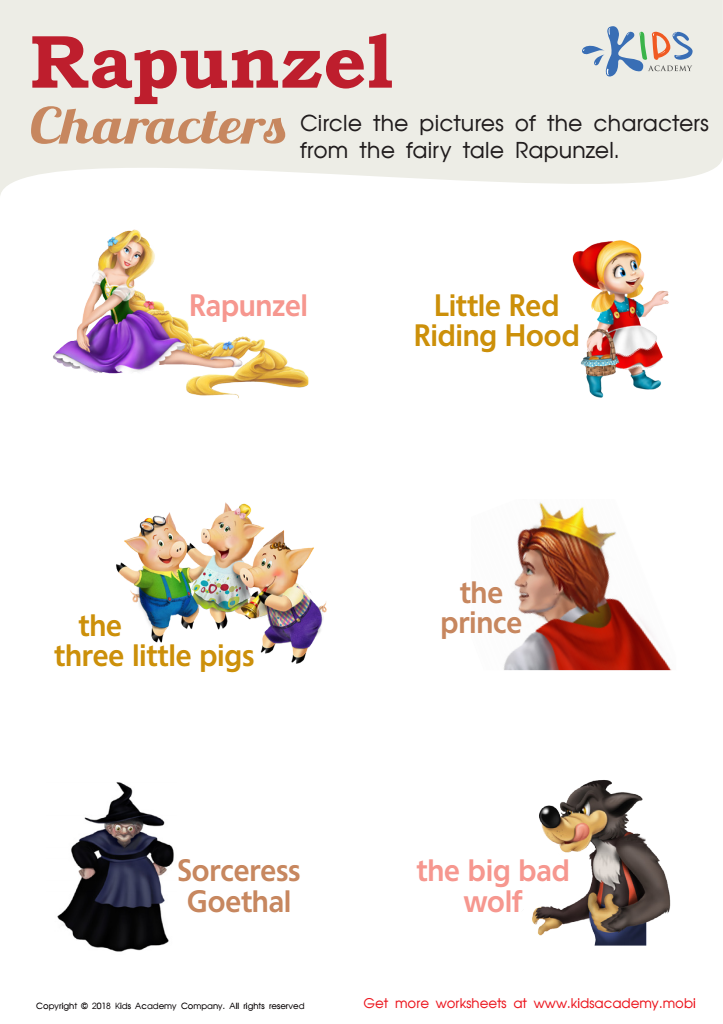

Rapunzel Characters Worksheet
Analytical skills reading for ages 3-5 is fundamental because it lays the groundwork for critical thinking and problem-solving abilities that children will use throughout their lives. During these formative years, children are naturally curious and begin to make connections between words, images, and ideas. These skills develop through activities like storytelling, picture books, and discussions about what they read, enabling young learners to comprehend and navigate their world more effectively.
Parents and teachers play a crucial role in fostering these abilities. Engaging children in conversations about stories they encounter helps enhance their comprehension and reflective thinking. Recognizing patterns, asking questions, and predicting outcomes encourages children to think deeply about the material, developing their analytical mindset.
Moreover, analytical reading skills are vital for academic success. As children progress in their education, strong analytical skills will enable them to evaluate information critically, understand complex text, and perform better in school. These abilities also promote a love for reading, enhancing cognitive development and emotional understanding.
Ultimately, nurturing analytical skills reading in early childhood empowers children not just academically, but also as confident individuals capable of making informed decisions in an increasingly complex world. Thus, for parents and teachers, prioritizing this aspect of early literacy is both a valuable investment and a crucial responsibility.

 Assign to My Students
Assign to My Students





.jpg)















